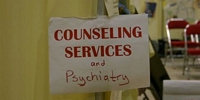According to The Federal Railroad Administration 3,000 train accidents occur across the United States every year. Over 1000 people die from railroad accidents from collisions and defective railway mechanisms. Many of these accidents could have been prevented had railway tracks, gates and crossing lights been properly maintained.
Typical Train Accidents
The National Transportation Safety Board reports the following as the most common types of train accidents:
· Collisions and derailment caused by other trains
· Collisions and derailment caused by passenger cars
· Improperly maintained railroad tracks
· Mechanical failure
· Railroad driver inexperience and fatigue
Hazardous Materials Spills
Another growing concern is environmental damage from hazardous spills from train accidents. In the United States, every two weeks a train hauling hazardous materials runs off the tracks. With a railway system of over 200,000 miles of tracks and 20,000 locomotives, the odds of an accident or dangerous spill happening are high.
Train Accident Statistics
Here are some statistics related to railway accidents provided by the National Transportation Safety Board and the Federal Railroad Administration:
· 60% of all crossing fatalities occur at unprotected crossings
· 80% of all public railroad crossings are not protected by lights and safety gates
· A derailment or train collision occurs every 90 minutes
· The federal government doesn’t scrutinize railroads as closely as other modes of transportation. Railroads are almost self-regulated
· There have been few technological changes or safety updates for railway systems in the past 70 years
· Local emergency crews have no control over trains resulting in dangerous delays in responding to critical calls
· While vehicle and train collisions have decreased, pedestrian and train collisions have increased
Railroad companies and its crew are responsible for passenger safety and taking reasonable care to avoid injury to anyone traveling on highways crossed by the train tracks. Railroad accidents can result in death or disabling injuries such as spinal cord or brain injuries.
If you were a train passenger or involved with a train collision, you can collect damages for your injuries if the railroad company is found responsible due to neglect or mismanagement of the train system.



